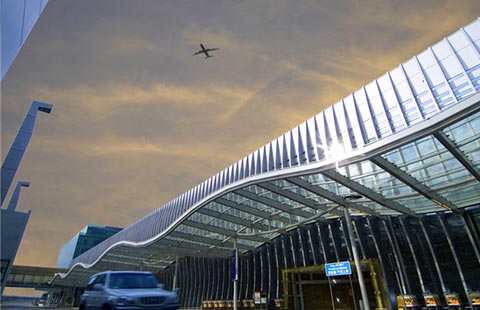Rail projects account for nearly half of infrastructure investment: report
(Xinhua) Updated: 2016-04-12 15:46BEIJING - Transportation and municipal construction projects accounted for over half of China's total infrastructure investment since 2015, according to a research report from an investment bank.
Railway and metro systems accounted for 46 and 33 percent, respectively, of total planned investment among the infrastructure projects approved by the country's top economic planner, the National Development and Reform Commission (NDRC), according to a report released by China International Capital Corporation Limited (CICC) on Monday.
The NDRC sped up approval of infrastructure projects in September 2015 after conferring with China Development Bank and Agricultural Development Bank of China about introducing ten initiatives to promote infrastructure investment and stabilize economic growth.
Since then, the NDRC has approved over 100 projects or plans to build transportation and metro systems with total investment of more than two trillion yuan ($309.6 billion), the report said.
Local governments launched a big amount of public-private partnership (PPP) projects in 2015 to finance infrastructure development. As of the end of February 2016, the PPP center of the Ministry of Finance had compiled 7,110 PPP projects with total investment of 8.3 trillion yuan. Of those, 6,000 projects with total investment of 6.8 trillion yuan have been launched since 2015, according to the report.
The report showed that most PPP projects are still in the identification phase, accounting for 69% of total investment. Shandong, Guizhou, Yunnan, Sichuan and Henan are the five provinces with the largest amount of investment. No PPP projects had been initiated by the government of Shenzhen, which has a sound fiscal status.
Accelerated project approval boosted growth of construction orders and newly started fixed asset investment (FAI) projects. According to the CICC industry research team, the value of infrastructure contracts signed by major central construction state owned enterprises (SOEs) grew 17.1 percent in 2015, much faster than the 2014 rate of 5.1 percent.
The planned investment of newly started FAI projects announced by the National Bureau of Statistics has accelerated since the fourth quarter of 2015 and jumped 41 percent year on year in the first two months of this year. Infrastructure-led investment recovery benefited SOEs, whose FAI grew 20.2 percent year on year in the period from January to February, much faster than non-SOEs' 5.7-percent growth, according to the report.
CICC expects investment growth to recover in 2016 and the pace of infrastructure investment growth is likely to pick up with more projects to start. Meanwhile, FAI growth is expected to speed up, and accelerated investment growth will also help the economy bottom out.
- Xinjiang investing heavily in infrastructure in 2016
- Govt to inject $927b into high-tech, infrastructure
- US welcomes China's initiatives to complement intl financial architecture: officials
- China has no reason not to have better planned cities, says scholar
- China vows to invest more in infrastructure, public services
- China auto sales up 8.8% in March
- Britain, China must jointly solve steel crisis: Chinese ambassador
- China's machinery industry showcased at Munich intl trade fair
- Thinnest TV, AI robot among high-tech gadgets to make Tmall debut
- China's RMB unlikely to depreciate largely this year, US expert says
- Second-tier cities bigger draw for property developers
- Airbus business jet ACJneo gets first Asian customer
- Didi partners with Lyft to help Chinese hail rides in US

















